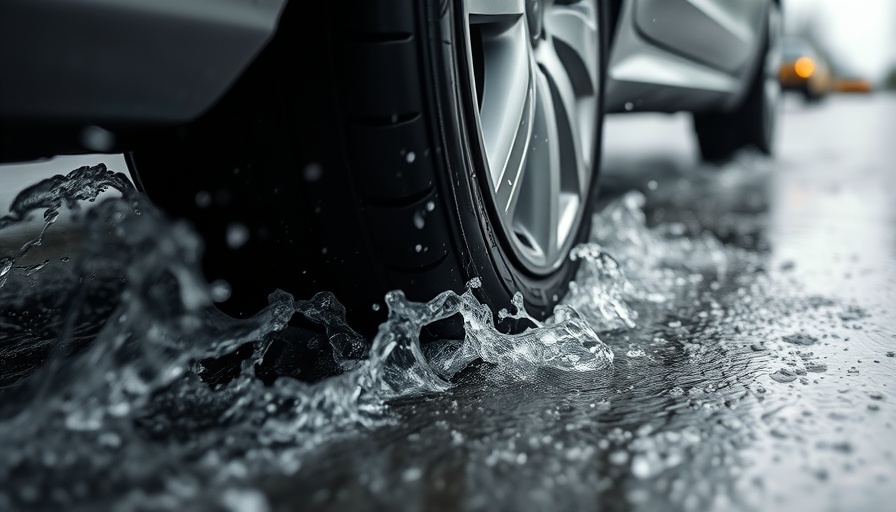
Protect Your Investment: The Importance of Home Maintenance
In today's climate of rising insurance rates, homeowners are faced with tough decisions to protect their homes against natural disasters and extreme weather fluctuations. Regular maintenance is not just about aesthetics; it also plays a significant role in minimizing insurance costs. According to experts, ignoring the upkeep of your property can lead to damages that not only invite claims but might also lead insurers to raise your rates or deny coverage altogether.
Smart Upgrades can Lead to Savings
One way to combat rising premiums is through smart upgrades. These projects range from enhancing security to overhauling your home’s systems, ultimately helping you save money. Scott Holeman and Anne Beatty, both insurance industry experts, emphasize the substantial insurance discounts available for proactive home improvements.
1. Boost Security: Save on Premiums
Consider investing in a security system: a smoke detector, burglar alarm, or dead-bolt locks can yield discounts of at least five percent on your premiums. For those willing to go the extra mile, a sophisticated sprinkler system coupled with advanced monitoring can reduce your rates up to 20 percent. While these systems can cost between $1,500 and $2,500 to install, the long-term savings can be substantial.
2. Upgrade Your Electrical Wiring
Electrical hazards are one of the leading causes of house fires, and outdated systems pose a significant risk. By modernizing your electrical panel and installing copper wiring, you not only increase the safety of your home but may also earn discounts from insurance companies. Expect to invest around $4 to $12 per square foot when rewiring your home, which could lead to an overall premium reduction.
3. Invest in Plumbing Improvements
Water damage is a major source of insurance claims. Upgrading your plumbing systems—by replacing old water heaters and fixtures—greatly decreases the risk of leaks. This preventative measure can save you money in premiums. Replacing a hot water tank may cost around $2,000, but the potential savings on your policy could outweigh this initial investment.
4. HVAC Overhaul for Lower Risks
Insurance companies prefer homes whose HVAC systems are younger than ten years. An outdated furnace can lead to secondary issues, increasing the likelihood of claims. Ensuring that your system is up-to-date not only lowers your insurance rates but also enhances your home’s comfort. Budget between $6,000 and $13,000 for a comprehensive HVAC upgrade.
5. Roof Maintenance: An Essential Project
Your roof is one of your home’s most important features; a well-maintained roof can lead to lower insurance rates. Regularly checking for issues like moss or missing shingles can help maintain your coverage and ultimately save you money.
Connecting Home Improvements to Wellness
Investing in your home isn’t just about financial savings; it also contributes to your health and overall well-being. A home with upgraded systems and routine maintenance fosters a safe environment that enables you to fully embrace home life. Innovative design solutions that promote healthy living are more than just a trend—they provide the peace of mind we all seek.
Embracing Sustainable Living
Sustainability can further intertwine with your insurance savings. Eco-friendly upgrades might enhance your home’s value, attract lower premiums, or even result in policy discounts for environmentally responsible initiatives.
Make Informed Decisions for Future Savings
Homeownership is both an adventure and a responsibility. By thoughtfully selecting your projects and keeping your essential systems up to date, you can ensure your financial and emotional investment yields the greatest return. With the right approach, home maintenance can lead to a more secure, financially stable, and healthier living environment.
Let’s start embracing these opportunities for improvement! Explore home upgrades that meet both your aesthetic desires and financial goals. The more you invest in maintaining and enhancing your home, the more you can potentially reduce insurance costs and enjoy a healthier lifestyle.
 Add Row
Add Row  Add
Add 



 Add Row
Add Row  Add
Add 
Write A Comment